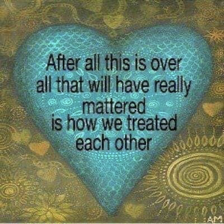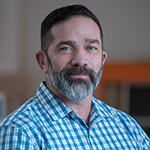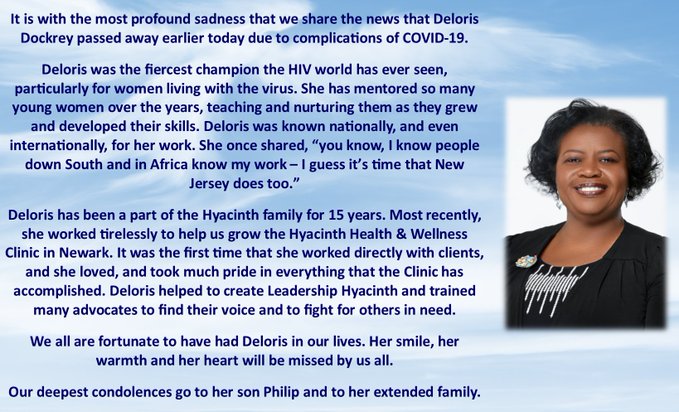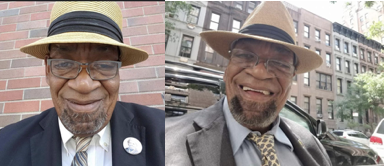 Information about COVID-19 is rapidly changing. Our next webinar is an update on the new virus and the work that is being done in response. Dr. Stephaun E. Wallace* from Fred Hutchinson Cancer Research Center will lead the discussion. The webinar will provide an update on the COVID-19 vaccine trials and what that means to communities. NMAC is working with the COVID-19 Prevention Network (CoVPN) to bring our movement the latest information. In addition to webinars, the CoVPN will host workshops at this year’s United States Conference on HIV/AIDS. As a friendly reminder, the Abstract Deadline is July 17th.
Information about COVID-19 is rapidly changing. Our next webinar is an update on the new virus and the work that is being done in response. Dr. Stephaun E. Wallace* from Fred Hutchinson Cancer Research Center will lead the discussion. The webinar will provide an update on the COVID-19 vaccine trials and what that means to communities. NMAC is working with the COVID-19 Prevention Network (CoVPN) to bring our movement the latest information. In addition to webinars, the CoVPN will host workshops at this year’s United States Conference on HIV/AIDS. As a friendly reminder, the Abstract Deadline is July 17th.
The COVID-19 webinar is on Thursday, July 16th at 1 PM (Eastern)/11 AM (Pacific). All of NMAC’s webinars are free and open to everyone. Webinars not only provide information, they train staff and potential USCHA attendees on various technology platforms being used for distance learning. The COVID-19 Prevention Network (COVPN) was established by merging four existing NIAID-funded clinical trials networks: the HIV Vaccine Trials Network (HVTN), based in Seattle; the HIV Prevention Trials Network (HPTN), based in Durham, N.C.; the Infectious Diseases Clinical Research Consortium (IDCRC), based in Atlanta; and the AIDS Clinical Trials Group, based in Los Angeles, along with other collaborators. It is important to point out how the HIV research infrastructure is supporting the search for a COVID-19 vaccine.
The COVID-19 Prevention Network (COVPN) was established by merging four existing NIAID-funded clinical trials networks: the HIV Vaccine Trials Network (HVTN), based in Seattle; the HIV Prevention Trials Network (HPTN), based in Durham, N.C.; the Infectious Diseases Clinical Research Consortium (IDCRC), based in Atlanta; and the AIDS Clinical Trials Group, based in Los Angeles, along with other collaborators. It is important to point out how the HIV research infrastructure is supporting the search for a COVID-19 vaccine.
 Treatment education, whether it’s about HIV or COVID-19, is core to our work. Both viruses are infectious diseases that disproportionately impact People of Color. Solutions to ending either epidemic depend upon effective treatments and/or a vaccine. As we have learned in HIV, having tools that work is only the first step. You have to be able to convince people to take the drugs or get the vaccine. That is a complex challenge. Our unequal medical infrastructure combined with a mistrust of the government can create real barriers to ending either epidemic. Black Lives Matter is about addressing these inequities in our society. The color of your skin should not impact your access to medical care and it should not determine your belief in government but, for too many, it does.
Treatment education, whether it’s about HIV or COVID-19, is core to our work. Both viruses are infectious diseases that disproportionately impact People of Color. Solutions to ending either epidemic depend upon effective treatments and/or a vaccine. As we have learned in HIV, having tools that work is only the first step. You have to be able to convince people to take the drugs or get the vaccine. That is a complex challenge. Our unequal medical infrastructure combined with a mistrust of the government can create real barriers to ending either epidemic. Black Lives Matter is about addressing these inequities in our society. The color of your skin should not impact your access to medical care and it should not determine your belief in government but, for too many, it does.
NMAC

*Dr. Stephaun E. Wallace is a research epidemiologist and an internationally recognized public health/social justice leader with more than 20 years of sexual/public health experience with diverse populations including LGBTQ and MSM populations, and more than 25 years of social justice/community mobilization experience. Dr. Wallace serves as the Director of External Relations for the COVID-19 Prevention Trials Network (CoVPN) and HIV Vaccine Trials Network (HVTN), a Staff Scientist in the Vaccine and Infectious Disease Division at Fred Hutch, and a Clinical Assistant Professor in the Department of Global Health at the University of Washington.
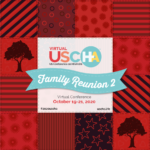
 A virtual HIV jobs fair is our response to the need to be socially distant while looking for employment. Specific times will be set aside during the 2020 conference for participants to go the Virtual Exhibit Hall to meet with organizations with job openings. NMAC is giving free exhibit booths to the 57 jurisdictions that are targeted in this federal effort. Since these health departments will receive the lion’s share of the new funding, they or other organizations in their jurisdictions will have the most jobs to fill.
A virtual HIV jobs fair is our response to the need to be socially distant while looking for employment. Specific times will be set aside during the 2020 conference for participants to go the Virtual Exhibit Hall to meet with organizations with job openings. NMAC is giving free exhibit booths to the 57 jurisdictions that are targeted in this federal effort. Since these health departments will receive the lion’s share of the new funding, they or other organizations in their jurisdictions will have the most jobs to fill. Full time professional employment for the communities hardest hit by HIV equals racial and social justice for communities disproportionately impacted by racism, transphobia, homophobia, and sexism. We have the ability to transform the discussion of racial justice in America by just doing our jobs and hiring people from the communities hardest hit by HIV.
Full time professional employment for the communities hardest hit by HIV equals racial and social justice for communities disproportionately impacted by racism, transphobia, homophobia, and sexism. We have the ability to transform the discussion of racial justice in America by just doing our jobs and hiring people from the communities hardest hit by HIV. To support people looking for jobs and to help organizations looking to hire, USCHA needs
To support people looking for jobs and to help organizations looking to hire, USCHA needs  The
The  Last week more than 600 people registered to attend one of the three webinars that NMAC hosted to discuss the virtual platform and to get feedback on priority workshops. Attendees shared that they wanted workshops that address:
Last week more than 600 people registered to attend one of the three webinars that NMAC hosted to discuss the virtual platform and to get feedback on priority workshops. Attendees shared that they wanted workshops that address: Per feedback received, attendees are looking for guidance on what HIV services they should prioritize and how to provide those services. Community especially wants and needs guidance from funders about what they will support in the next iteration of our work. Here are some of the topics that were suggested:
Per feedback received, attendees are looking for guidance on what HIV services they should prioritize and how to provide those services. Community especially wants and needs guidance from funders about what they will support in the next iteration of our work. Here are some of the topics that were suggested: Participants on the webinars also said they were looking for concrete steps for their agencies to stand in support of Black Lives Matter. Everyone agreed that the work starts with education about race and racism. Here are topics participants said they would like as workshops:
Participants on the webinars also said they were looking for concrete steps for their agencies to stand in support of Black Lives Matter. Everyone agreed that the work starts with education about race and racism. Here are topics participants said they would like as workshops: As you can read, virtual workshops require much more advance work. This is not something that can be done on the plane to the meeting. Thousands of people will attend this year’s meeting, and even more will view it online after. USCHA needs your help to make this a memorable and informative experience. Thank you.
As you can read, virtual workshops require much more advance work. This is not something that can be done on the plane to the meeting. Thousands of people will attend this year’s meeting, and even more will view it online after. USCHA needs your help to make this a memorable and informative experience. Thank you.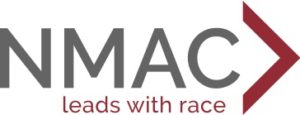

 In addition to HIV health outcomes, our movement also lacks people of color in leadership positions. The Black AIDS Institute did a survey that found “White people hold 67% of the senior leadership positions in AIDS service organizations.” Questions about race, gender, gender identity, and the sexual orientation of our leadership are part of the much wider discussion on equity, fairness and justice for communities who suffered from generational racism and oppression. To be clear, I’m not saying fire all the White people. I am saying that White leaders working in the HIV field have a unique responsibility to address race and how they will work to dismantle racist systems.
In addition to HIV health outcomes, our movement also lacks people of color in leadership positions. The Black AIDS Institute did a survey that found “White people hold 67% of the senior leadership positions in AIDS service organizations.” Questions about race, gender, gender identity, and the sexual orientation of our leadership are part of the much wider discussion on equity, fairness and justice for communities who suffered from generational racism and oppression. To be clear, I’m not saying fire all the White people. I am saying that White leaders working in the HIV field have a unique responsibility to address race and how they will work to dismantle racist systems. What role does racial bias play when reviewing funding requests from People of Color organizations? This bias was recently acknowledged by the University of California when they stopped using SAT or ACT scores for college admission because of the racial bias of those tests. This matters to the HIV movement because we are about to distribute millions in new funding. Look at who gets funded to understand how systems are biased against people of color and the organizations they run. If we keep operating in the same ways, how can we expect different results? It is not enough to make a statement supporting Black Lives Matter. Now is the time to create and implement systems that value the leaders and communities hardest hit by HIV.
What role does racial bias play when reviewing funding requests from People of Color organizations? This bias was recently acknowledged by the University of California when they stopped using SAT or ACT scores for college admission because of the racial bias of those tests. This matters to the HIV movement because we are about to distribute millions in new funding. Look at who gets funded to understand how systems are biased against people of color and the organizations they run. If we keep operating in the same ways, how can we expect different results? It is not enough to make a statement supporting Black Lives Matter. Now is the time to create and implement systems that value the leaders and communities hardest hit by HIV. This is where the hard work begins. Community-based organizations, health departments, national organizations, and federal HIV agencies who want to end the HIV epidemic must address racism and its structural impact on America’s HIV outcomes. The work to build antiracist institutions starts with education. Understanding White privilege, unconscious implicit bias, and structural racism are essential before building plans.
This is where the hard work begins. Community-based organizations, health departments, national organizations, and federal HIV agencies who want to end the HIV epidemic must address racism and its structural impact on America’s HIV outcomes. The work to build antiracist institutions starts with education. Understanding White privilege, unconscious implicit bias, and structural racism are essential before building plans.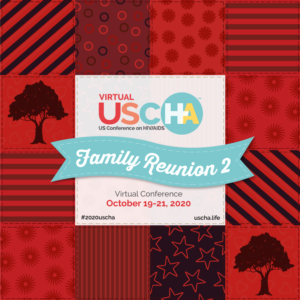
 The meeting is free because it seemed tone deaf to ask for money when so many nonprofits are hurting and there are over 40 million people unemployed. Free registrations* are for community and only possible because our 2020 sponsors stepped up and continued to support the meeting. NMAC thanks our Presenting Sponsor Gilead, along with ViiV Healthcare, Janssen, Merck, and our Federal Partners, including the National Institutes of Allergy and Infectious Diseases. While registration is free, NMAC will ask for donations. You do not have to give, but I hope you will consider making a donation. Even with the sponsor fees, the board had to approve deficit spending to keep the agency whole during these challenging times.
The meeting is free because it seemed tone deaf to ask for money when so many nonprofits are hurting and there are over 40 million people unemployed. Free registrations* are for community and only possible because our 2020 sponsors stepped up and continued to support the meeting. NMAC thanks our Presenting Sponsor Gilead, along with ViiV Healthcare, Janssen, Merck, and our Federal Partners, including the National Institutes of Allergy and Infectious Diseases. While registration is free, NMAC will ask for donations. You do not have to give, but I hope you will consider making a donation. Even with the sponsor fees, the board had to approve deficit spending to keep the agency whole during these challenging times. The murder of George Floyd was another in a too long list of wake-up calls that Black Lives Matter. The issue is bigger than just the police. It was also a wake-up call for the HIV movement. The majority of people living with HIV are people of color and the majority of people on PrEP are white. Our HIV outcomes document the challenges that race plays in our field. NMAC challenges community-based organizations, health departments, health centers, national organizations and federal agencies to create and implement strategic plans to build antiracist HIV institutions.
The murder of George Floyd was another in a too long list of wake-up calls that Black Lives Matter. The issue is bigger than just the police. It was also a wake-up call for the HIV movement. The majority of people living with HIV are people of color and the majority of people on PrEP are white. Our HIV outcomes document the challenges that race plays in our field. NMAC challenges community-based organizations, health departments, health centers, national organizations and federal agencies to create and implement strategic plans to build antiracist HIV institutions. New programs at the 2020 USCHA include a Virtual Jobs Fair. Over 40 million people are unemployed. USCHA hopes to bring people needing jobs together with the HIV organizations who are hiring. Over $300 million in new funding was in the 2020 federal budget to end the HIV epidemic and that means thousands of new jobs. NMAC is giving free booths to the 57 jurisdictions targeted to receive this money so they or organizations in those jurisdictions can share job openings. Hire people from the communities your efforts hope to reach, particularly people in senior leadership positions.
New programs at the 2020 USCHA include a Virtual Jobs Fair. Over 40 million people are unemployed. USCHA hopes to bring people needing jobs together with the HIV organizations who are hiring. Over $300 million in new funding was in the 2020 federal budget to end the HIV epidemic and that means thousands of new jobs. NMAC is giving free booths to the 57 jurisdictions targeted to receive this money so they or organizations in those jurisdictions can share job openings. Hire people from the communities your efforts hope to reach, particularly people in senior leadership positions. Virtual conferences are another result of COVID-19. While we’ve gotten more adept at Zoom calls, virtual conferences are new. NMAC will host a series of webinars to help attendees get the most out of the meeting.
Virtual conferences are another result of COVID-19. While we’ve gotten more adept at Zoom calls, virtual conferences are new. NMAC will host a series of webinars to help attendees get the most out of the meeting.  Given these turbulent times, USCHA has decided to return to our 2017 theme, Family Reunion II. Family are more than blood. They are the people you want to hug when you should be socially distant. NMAC remains committed to Puerto Rico. The 2022 USCHA will be in San Juan
Given these turbulent times, USCHA has decided to return to our 2017 theme, Family Reunion II. Family are more than blood. They are the people you want to hug when you should be socially distant. NMAC remains committed to Puerto Rico. The 2022 USCHA will be in San Juan  on Oct 10-13, 2022 and there will be a Spanish language track at this year’s meeting. This Friday is Juneteenth and NMAC will be closed. On this day we celebrate the emancipation of the last enslaved African Americans by the Confederacy.
on Oct 10-13, 2022 and there will be a Spanish language track at this year’s meeting. This Friday is Juneteenth and NMAC will be closed. On this day we celebrate the emancipation of the last enslaved African Americans by the Confederacy. This weekend I joined thousands of people who protested on the streets of DC. Walking with my mask, I was amazed at the diversity. Families of all races, all genders, and all sexual orientations came together in a peaceful protest. It was actually more like a celebration. People were dancing, drumming, singing, and chanting. There were no leaders, just concerned citizens who felt compelled to make their voices heard, even in the middle of COVID-19. I heard one father explain to his child that they were there to witness history and to fight to make the world a better place.
This weekend I joined thousands of people who protested on the streets of DC. Walking with my mask, I was amazed at the diversity. Families of all races, all genders, and all sexual orientations came together in a peaceful protest. It was actually more like a celebration. People were dancing, drumming, singing, and chanting. There were no leaders, just concerned citizens who felt compelled to make their voices heard, even in the middle of COVID-19. I heard one father explain to his child that they were there to witness history and to fight to make the world a better place.
 I just so happened to arrive when DC Mayor Muriel Bowser stepped on to Black Lives Matter Plaza. It was an honor to see her amazing protest art in front of the White House. Her leadership as a Black woman at this critical moment added to the peaceful and celebratory nature of the protests. She was a rock star and I honor her vision, strength, and courage to step up and be heard. I also loved that her mask matched her t-shirt.
I just so happened to arrive when DC Mayor Muriel Bowser stepped on to Black Lives Matter Plaza. It was an honor to see her amazing protest art in front of the White House. Her leadership as a Black woman at this critical moment added to the peaceful and celebratory nature of the protests. She was a rock star and I honor her vision, strength, and courage to step up and be heard. I also loved that her mask matched her t-shirt.











 One important step, especially during these difficult financial times, is to hire people of color, people of trans experience, Black women, and gay men. Our movement is about to experience the largest influx of new funding in the last two decades. Thousands of new people will be hired to carry out the various programs to end the HIV epidemic. Hire people who live in and are part of the communities our work hopes to reach. Employment is a critical social determinant of health and an important step towards racial justice.
One important step, especially during these difficult financial times, is to hire people of color, people of trans experience, Black women, and gay men. Our movement is about to experience the largest influx of new funding in the last two decades. Thousands of new people will be hired to carry out the various programs to end the HIV epidemic. Hire people who live in and are part of the communities our work hopes to reach. Employment is a critical social determinant of health and an important step towards racial justice.


 Understanding when and how to re-open is particularly challenging for HIV organizations. Our clients and/or staff could be immune compromised. Not everyone can achieve an undetectable viral load. As the data has shown, people of color are particularly hard hit by both HIV and COVID-19. Please join me for my first Instagram Live conversation with
Understanding when and how to re-open is particularly challenging for HIV organizations. Our clients and/or staff could be immune compromised. Not everyone can achieve an undetectable viral load. As the data has shown, people of color are particularly hard hit by both HIV and COVID-19. Please join me for my first Instagram Live conversation with 
 Alina Duarte, periodista independiente, DC– El racismo institucionalizado perpetúa el que las comunidades de inmigrantes sean mantenidas en el margen. Alina presentará cómo esto ha causado un efecto dispar dentro de la pandemia a la vez que muestra estrategias que han demostrado ser efectivas.
Alina Duarte, periodista independiente, DC– El racismo institucionalizado perpetúa el que las comunidades de inmigrantes sean mantenidas en el margen. Alina presentará cómo esto ha causado un efecto dispar dentro de la pandemia a la vez que muestra estrategias que han demostrado ser efectivas. José Romero, Latino Commission on AIDS, NC– El peligro de la deportación al momento de buscar servicios es una de las barreras principales que enfrentan las comunidades de inmigrantes en los Estados Unidos. Por esta razón, José Romero hablará sobre cuáles son los derechos de estas poblaciones y qué pueden hacer para continuar con el cuidado de la salud.
José Romero, Latino Commission on AIDS, NC– El peligro de la deportación al momento de buscar servicios es una de las barreras principales que enfrentan las comunidades de inmigrantes en los Estados Unidos. Por esta razón, José Romero hablará sobre cuáles son los derechos de estas poblaciones y qué pueden hacer para continuar con el cuidado de la salud. Anandrea Molina, Organización Latina Trans en Texas, TX– Poblaciones ya desventajadas son puestas en situaciones de riesgo aún mayores en eventos de crisis como los actuales. Por esto, Anandrea expondrá las desigualdades hacia las comunidades trans en el sur de los Estados Unidos y cuáles son las herramientas que tienen para enfrentarlas.
Anandrea Molina, Organización Latina Trans en Texas, TX– Poblaciones ya desventajadas son puestas en situaciones de riesgo aún mayores en eventos de crisis como los actuales. Por esto, Anandrea expondrá las desigualdades hacia las comunidades trans en el sur de los Estados Unidos y cuáles son las herramientas que tienen para enfrentarlas.
 Today is
Today is 


 Today is Giving Tuesday Now, a new global day of giving and unity – in addition to the regularly scheduled Dec 1, 2020 Giving Tuesday – as an emergency response to the unprecedented need caused by COVID-19. Like all nonprofits and especially those in the HIV movement, NMAC faces challenges for the duration of the pandemic.
Today is Giving Tuesday Now, a new global day of giving and unity – in addition to the regularly scheduled Dec 1, 2020 Giving Tuesday – as an emergency response to the unprecedented need caused by COVID-19. Like all nonprofits and especially those in the HIV movement, NMAC faces challenges for the duration of the pandemic.